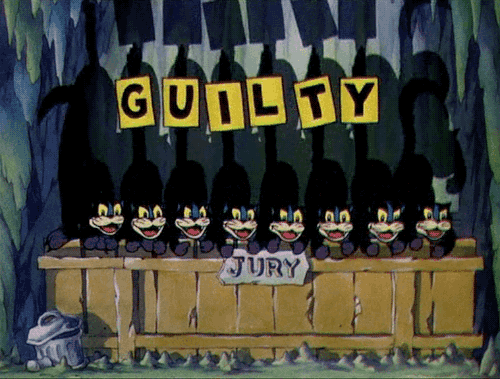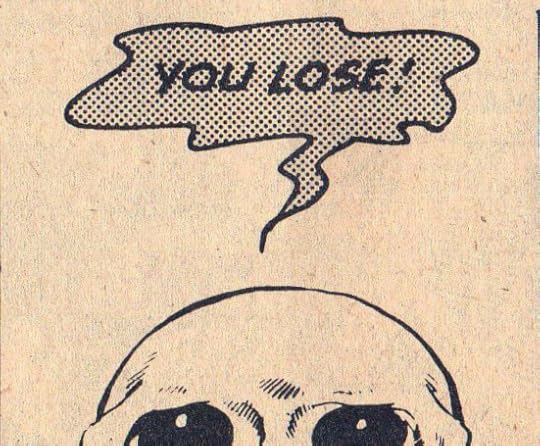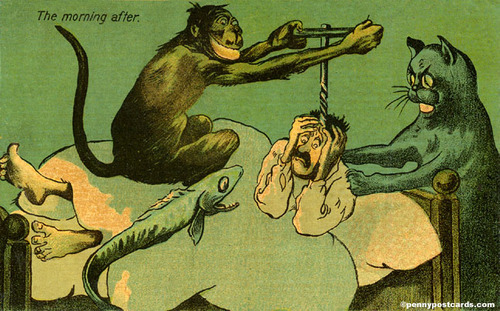Rick Wayne's Blog, page 101
July 10, 2015
Oh, you're THAT kind of writer
today my family invades my peaceful denver writing retreat. cue alien invasion film score.

art by Jakub Rebelka
it's always interesting to see the different reactions when i tell people i'm a writer. i'm almost to the point where i can predict it based on context, or even location.
on ello or goodreads for example, most (read: not all) people seem to think -- absent any other cues -- that writer means novelist, as in someone who plucks wisdoms from the tree of life, wraps them in lyrical prose, and sends them to you like a love letter.
blech
yeah, i'm not that kind of writer.
i have nothing against it, to be honest, just like i have nothing against historical romance or children's books. however, i have found that most (read: not all) people who go in for literature exclusively -- which is very different than reading from a mixed palette -- tend to share a certain socioeconomic status.
also, i distrust people who, merely for the sake of enjoyment, savor the pain of others, like emotional vampires.
it's been said by smarter women than me that the novel-as-art arrived rather late in human history and that there's nothing to suggest it will persist. it might be overtaken by film, for example.
the stories i tell are the stories people have been telling -- as far as we know -- for as long as there have been words. not those that examine our peccadilloes through the glint of the jeweler's glass, but those that take us away. stories you would tell huddled around a campfire. stories about gods and monsters.
and ghosts and ninjas and wizards and dinosaurs and dragons and giant robots and swords that can cut through anything and a nameless evil that seeks to cover the world.
high greek tragedy was filled with this stuff, and shakespeare was the dime-novel pulp of his day, writing about witches and fairies and political assassinations.
i don't know about you, but i have enough faults and false starts that i don't enjoy recycling those of others. of course, your mileage may vary.
July 3, 2015
The U.S. is an Unfinished Book: Three and a Half Stars
It's a holiday weekend here in the U.S. We get a lot of bad press around the world -- not without reason.
I often tell people I'm proud to be an American, although that wasn't always so. For most of my life, it's been cool to hate on the stars and stripes. When I was younger, mostly until college, I would often keep my mouth shut.
Before university, most of the history you learn is about your own country. Not ALL of course, but that's certainly the focus in most places, since the ultimate goal of compulsory education is not to turn out educated citizens but simply citizens.
But world history was a big part of my higher curriculum -- although my primary training is biological science -- and so for the first time in my life I got to learn about all those other countries out there.
Ouch.
Here's the deal. The Declaration of Independence is an amazing document, unprecedented in its ambition. Literally. To the British who received it, it would have no doubt seemed a farce. And indeed, there were a great many people predicting doom after the Revolution, and again when the Articles of Confederation failed, and again during the War of 1812, and again during the Civil War, and again during waves of immigration, and again at universal suffrage, and again during the Civil Rights movement... And still.
Apparently we've been teetering from the start!
From the moment the Declaration -- and its companion, the Bill of Rights -- were penned, the United States was immediately and embarrassingly short of its ambition. And for the last two hundred and some years, we've still not managed to achieve it. Recent events come to mind.
But that's the thing about lofty goals. They push us to do better. And those two hundred years are nothing if not the story of us -- painfully, often excruciatingly slowly -- doing better.
We still have a long way to go. But I submit to you that it will take far, far longer to get there while liberally-minded people continue to let conservatives appropriate the public symbology, like the flag. And patriotism.
As Orwell noted, there is a difference between that and jingoism. The ideologue will not be able to discern it, their eyes being blinded by the light of their own righteous truth, but in that narrow gap the real battle is fought -- at the level of belief, at the level of myth.
There are always those people who will tell you that the movie you liked was the the most awful, tepid, useless, boring piece of trash ever filmed. Some people wear hyperbole like a hat. Others will tell you it's the greatest masterpiece since Citizen Kane.
It really depends on what your expectations are. If you once believed the propaganda (that cherry-picked truth) but don't anymore, you'll be an eternally disappointed liberal. If you STILL believe the propaganda, you're part of the problem.
But in between, I believe there's room for us to be proud of what we've accomplished without diminishing the scope of the work ahead. The United States is, if anything, an unfinished work whose first chapter opens with the line, "We hold these truths to be self-evident..."
Let's finish the book.
and here are three visions of america
[image error]
"Fourth" by Franco Brambilla

Jasper Johns' famous whitewashed flag
[image error]
"Bill Clinton: Ladykiller" by sharpwriter
July 1, 2015
Chasing the Broken Wastrel
(NSFW)
Today I am heading into the nethervoid of my subconscious as I work on Episode Four of THE MINUS FACTION. There will be cyborgs and flying ambulances and a series of bad decisions that culminate in a literal heart-stopping end.
Probably.
At the outset of a new project, there's always a quick ejaculation, a splatter of ideas that, in typical male fashion, quickly expires.
Then the hard work begins. You have to dredge it up, the word vomit that you smear with your fingers as you try to make something on the page.
My post-ejaculatory emetic is my fragments file, a kind of virtual junk drawer for snippets -- sometimes no more than a name (one day I will use you, Ribald!) -- that I can either reclaim or use to tickle another flow.
It's always fun to come across something you haven't read in months (or years), such as the following, which I think I've shared before and which I think works just as well applied to fiction writing as to love or, I suspect, art and music.
On every planet I have lived, and in every time, there have always been women chasing the broken wastrel.
They make no secret of it. In fact, the more a man sings of his pain, or writes bad poetry – and the more people hear it – the more falsely cocksure he is, the more compulsive, the more addicted, then the higher the bounty she can claim.
For the trauma must always be in greater proportion to her own, lest it fail to serve its purpose, as if it were possible to grow one garden by tending another.
After a time, when her youth has faded and she can no longer command a high crop, she will tire of sterile toil and seek a man whose garden is well fruited, and thence populate her own barren plot with seeds and cuttings until his is not half what it was.
Seek not, my son, such women as these, for there are ample others. Though she be less susceptible to your flatteries, oftentimes less comely, her deficits will match your surpluses, and contrariwise the same.
Seek her in places high and low, where she will often be reading or otherwise keeping her own company. Do not sing of your weaknesses, but do not hide them either. Rather, provide her reason to notice your strengths. Do good, such that you may be a candle to the beneficent.
And do not – ever – consort with liars, but discern that they are not always maliciously so. She may call it innocent, a game of hide-and-seek with her self, the setting of a travail through which you must pass to discover the secret flower at her heart.
But no matter how enchanting, a cavalier woman is reckless and shifting, and can do naught but pour ruin over your soul.
-advice from the Grand Dame of Alturth to her grandson on the occasion of his father's cruel murder at the hands of the Asteroid Witch
There are those who will tell you that, when creating, you should just do what you enjoy, that the best art you can possibly make is that which fulfills you. And that's true, to a point.
I've said before that all creativity is sexual. The content may not be sexual -- it may be just the opposite -- but the creative act is a sexual one, and just as in sex, "just do what feels good" may or may not work out well for all parties involved.
Giving your reader a braingasm takes effort, yet nothing is as relentlessly tedious as the Nth hour spent diddling someone you couldn't care less about. But then, we reflect each other's enthusiasm, so if they can't get off, there's a good chance it's you.
The best fiction, like the best sex, explodes when both parties are in love. To write well, you really have to love your reader as you would a spouse: with passion, with dedication, with honesty, with excitement, with commitment, and with the knowledge that sometimes you're going to cock it up and that's not the end of the world.
The trick of course is not to be lured by the broken wastrel or the careless minx.

image by Pierre Winther
June 2, 2015
The only writing advice
If you're learning brain surgery, it's probably a good idea to practice before diving right in. Same goes for auto repair. You don't want to be hearing later about how you installed those brakes wrong.
But writing isn't brain surgery, or automobile maintenance, or even tax accounting. In writing, everything in the world you possibly need to know is:
Write.Think about what you wrote.Write some more.Of course, there's a long journey in those nine words, and no two writer's paths are going to be the same. But then that's the point.
There's not something you're supposed to be doing. There's no Ten Tips to Being a Better Writer. Big Name Author's secret tricks probably won't apply to you. Writing is not like fixing widgets or excising tumors or trading stock. You don't have to read the manual first. You don't even have to wash your hands!
Some advice can be helpful of course. I'm not suggesting you never listen to anyone or that you never lift your head to see what your colleagues are up to. That would be silly.
But advice as such is always faulty -- not necessarily wrong or useless, just incomplete. "Tips & Tricks" have about as much use to the professional author as whoopee cushions do to the quantum physicist: at best a diversion, at worst a distraction. And obsession with them is just another form of procrastination.
"I can't start now. I don't know how. I have to learn the tools first."
Bullshit. You coward.
Thing is, you do need to learn the tools. You just don't need to learn them first. Yes, in the beginning you're going to make a bloody mess. But that's how you learn.
I see a lot of writing advice out there. I even get asked for it sometimes. It seems like those most interested in it are also the ones in the biggest hurry. They are the big, fat SUV of writing, zooming to the end of the narrowing lane to jump ahead of everyone else. Only it doesn't work that way.
Think of it this way. Writing advice is like diet advice.
LOSE TEN POUNDS IN FIVE MINUTES WITH THIS ONE SIMPLE HOLLYWOOD TRICK YOUR DOCTOR DOESN'T WANT YOU TO KNOW ABOUT
Everyone over the age of fifteen knows the requirements for weight loss. It's not a mystery.
Eat lessEat healthyExerciseThe multi-billion-dollar diet industry is built on the basic premise that you can repackage something everybody already knows to make it seem both novel and slightly less painful.
No, no. We're serious. It really works this time. All you have to do is eat mostly fat/eat mostly protein/fast like a yogi/feast like a caveman/graze like a gazelle.
If any of these programs worked as advertised, they wouldn't need to keep inventing new ones.
That's not to say losing weight isn't damned hard. Of course it is. But every body is different, and the only way anybody loses weight is by figuring out what works for theirs, which is to say jumping right in, seeing what works, and adjusting as appropriate.
Sound familiar?
So you want to be a writer. Do you want to write as a hobby, or do you want to be a professional? Do you want to write a genre bestseller, or do you want to craft literary masterpieces that make readers wet their shorts?
Doesn't matter. The path is the same:
Write.Critically evaluate what you wrote, preferably based on feedback.Write some more.Then repeat forever.
Now, for fuck's sake, stop reading this bullshit and get back to work.

May 25, 2015
Thoughts on cake after a month in Japan
i lost seven pounds in japan, proving yet again that exercise is necessary but not sufficient for weight loss.
for those who don't know, for nearly six months prior to my departure, i was doing P90x3 six days a week, and while i packed on the muscle, at no point did i ever weigh less than when i started, which is to say my weight shot UP. there was a little bit of fat loss as evidenced by slightly looser pants, but it was nothing to get excited about, certainly less than what i could have gotten by just sticking with the treadmill.
but japanese people are skinny. not ALL of them, of course, but as a class, they're fucking thin. and it's easy to see why.
i know a lot of you like to rag on the standard american lifestyle. i do not. it's not that i love it as much as that i just don't want to be that guy. frankly, ya'll sound like christians proselytizing your faith and damning the rest of us to the hell of poor health with a wag of your finger. (i know you both believe you've found the one true path to salvation, but if i'm interested in being witnessed to, i'll ask. thanks.)
i had burgers on friday, pizza on saturday, and mexican yesterday -- fuck you, i've been gone for a month -- so you can be sure i'm not trying to convert you to anything. but holy cow, they do it so much better over there.
in the first place, they walk, often in a hurry while fighting crowds. i sweated a lot just getting where i needed to go.
but more than that, they eat fish and vegetables with nearly every meal. yes, you can get a burger and fries, or kfc, or whatever, but those kinds of things tend to be the exception. daily meals are vegetables and fish for protein with rice or noodles for a starch. the portion sizes are smaller. the produce is not the bland, inflated (because sold by weight) crap we get here. convenience stores are not stocked with processed food made from government-subsidized corn. there are almost no chips and cookies have way less sugar.
and while that all sounds great, there are some negatives. for example, the produce is tasty but expensive. it's not unusual to pay $2-3 for a single orange and $20 for a (small) watermelon. that takes a real bite out of a working class budget.
what's more, the necessity of walking in japan is underwritten by a lack of physical space. trains run everywhere simply because they can. everything is packed tight. it's damned hard to have both comfortable living space and efficient, universal mass transit.
i don't exactly see people -- here or anywhere -- lining up to air-dry their laundry in a studio apartment with a kitchen you can literally wrap your arms around. it's a daily frustration.
if i can't reliably go everywhere i need to on mass transit, then i need a car. once i have the freedom of a car, i don't have to satisfy myself with the hassles of tiny living. i can drive further out. and thus you end up with sprawl.
most of the japanese that i've talked to don't like the crowds, and while they've grown up with (and so are used to) the cramped living conditions, they would get larger homes if they had the choice. and that to me is important because it highlights how much of our respective lifestyles are driven, not by inherent virtue, but simply by the choices available.
if the japanese islands quintupled in space, old habits would persist for a time, but gradually they would erode as peoples' customs changed to fit the now-ample space, and within a few generations you'd have something more like what goes in in china, america, russia, and brazil.
that's not to say we don't need to make changes. of course we do. back in the day i dated a lawyer from mexico city working at the mexican consulate in washington, dc, where i lived at the time. she was 18 months into a two-year appointment and had gained a lot of weight (not that i cared).
"it's your cakes," she explained. "they're so delicious. and they're everywhere!"
she freely admitted to making fun of americans as fat and lazy, but when faced with the world of temptations we've built for ourselves, she succumbed just as easily -- or perhaps even easier for not having grown up with it -- as anyone else.
the challenge will be to re-architect our lives in a way that isn't a mass, government-coerced conversion to a new religion. some people look to how we've handled smoking. i don't see that as an unmitigated success -- although it has been effective -- and i get very angry at the suggestion that our ability to get fewer and fewer people to smoke involved no trade-off. it absolutely did.
i don't smoke cigarettes. never have. but smokers have become de facto second-class citizens, worthy of disgust and derision. there may be good, health-based reasons to reintroduce legal segregation, but let's not pretend like that has no further effects. those policies put the healthy (and wealthy) whole foods-shopper at the top of a social status pyramid, and i find that abhorrent.
there is no obesity epidemic. that suggests obesity is the disease. imagine if, in the nineteenth century, when faced with recurrent outbreaks of cholera, politicians reacted not by cleaning the water supply, but by creating a government program to hand out anti-diarrhea medicine to poor people.
i would suggest the so-called obesity epidemic has more to do with thirty years of supply side policies, with corn subsidies and increasing class stratification, than with some sudden change in basic human nature.
after all, human beings are how they are, whether here or on the japanese islands.

April 21, 2015
There is no "1,000 True Fans" in Publishing
Tech writer Kevin Kelley popularized the idea of the "1,000 True Fans," which pops up again and again in creative circles. (You can read his original article here.) The basic idea is that you do not need to have a blockbuster song/painting/movie/book in order to be successful, which for the sake of discussion we'll define as making a living at your craft. Rather, Mr. Kelley argues, all you need is 1,000 True Fans, defined as:
someone who will purchase anything and everything you produce. They will drive 200 miles to see you sing. They will buy the super deluxe re-issued hi-res box set of your stuff even though they have the low-res version. They come to your openings. They have you sign their copies. They can’t wait till you issue your next work. They are true fans.
These are the people that, as Mr. Kelley explains, will pay (something like) an entire day's wages every year for your stuff. He uses $100 as an example, but it could be $50 or even $30. It will vary of course, but 1,000 people paying you (on average) $50-100 a year is a fair living, even after book production expenses.
I don't have this idea printed and hanging in my office, but I've always liked it as a kind of thought experiment. As Mr. Kelley points out, it makes success seem achievable. (There's plenty in the world that makes it seem impossible.) You don't need a million people. You just need a thousand. You can get a thousand.
Right?
The problem, as some of you astute folks probably realized, is that writers don't produce $100 of merchandise in a year. Or $50. Or even $30.
In fact, after doing a quick informal (and completely unscientific) review of a bunch of writer's annual releases on Amazon, I'd say that the average True Fan in fiction -- someone who buys everything a writer produces -- is handing to the writer less than $10 a year. That's one hour's wages and less than what most people spend on coffee in a week.
The number of True Fans needed in publishing is more like 10,000, and that's if you are producing a couple full-length books a year, which I am not. (So far, not even close.) That means the number for me is more like 30,000 True Fans.
Think about that. I've lived in towns whose entire population is less than that. Suddenly the whole "true fans" concept isn't really making things seem any easier!
Incidentally, this is why traditional publishers pursue a mass market/broadcast model and why successful writers (both indie and traditional) place so much emphasis on their back catalog -- it's the only way you can generate enough inventory. It's not that anyone wants to bilk their readers. It's just that if you have someone who is interested in your stuff -- a rare commodity -- the value of their single purchase barely makes their attention worthwhile.
This is also why "boutique fiction" is not ever going to be a thing. The local artisanal cheese shop, or a freelance artist online, need only produce 4 products a year -- or one a quarter -- at $15-25 per in order to have enough product for the 1,000 True Fans (or 2,000 or 5,000 or whatever) concept to make sense.
But note, this not an argument to raise book prices. They are largely set by the market and so are out of our control anyway. Besides, the low unit cost is not the issue. Rather, it's the time of production. Your local hipster coffee shop stays in business on a series of three-dollar transactions, but unlike writers, they can keep selling to the same customers, over and over, two or three times a day, several days a week, because their time of production is measured in minutes, not months (or years).
The 1,000 True Fans thought experiment, applied to publishing, confirms the depressing advice you hear so often: "pump out as many books as you can as fast as you can." Publishing is a numbers game. It's closer to broadcasting than art. Quality might be important, but it's secondary to volume. In fact, just this past week, indie publishing mogul David Gaughran announced that his strategy would shift going forward. He said his colleagues have been giving him this advice for years, but he's been too stubborn to take it:
Write a series.
Write in a popular genre.
Write as fast as you can.
He admitted that somewhat dishearteningly. I dishearteningly admit he may be right.

March 25, 2015
Which is worse, rape or murder?
there are people who want to argue which is worse, rape or murder. every time i run into this, it just makes my skin crawl and i want to get as far away from those folks -- all of them -- as possible. it's a completely irrational discussion, and so there's no room for common accord, because it operates below the conscious mind. in the land of symbols.
i knew of a guy who went into a deep depression after his house was robbed. the thief had taken something of immense personal value. i think it was a ring from a dead loved one. the thought of the thief waltzing into his home with complete disregard for him and his family and casually taking (and probably pawning) his most treasured possession filled him with rage, but also made him feel impotent and marginalized, as if he (read: his feelings) didn't matter at all. he was stripped.
i would find out later that he was in the beginnings of what would end in divorce, and so the theft became the touchstone, a symbol, for his inability to protect himself, to keep bad things from happening. it's easy to look around and see other's happiness -- not everyone experiences pain at the same time or in the same way -- and so to feel that the fault must be ours in some way -- or else, why is everyone so happy but us? -- and that we're deficient, that there's nothing we can do about that, that there's no point in trying, that the world doesn't care, etc. depression is a beast, and you can't just "snap out of it."
this is the power we give symbols. we'll kill because of them. and i don't mean a sign on a flag. i don't even mean what that sign signifies. this is a tricky and subtle thought, but while people might ostensibly kill FOR the signified, that never actually appears. they kill BECAUSE of some perceived slight against it -- an act, interpreted as a crime. a symbol. it could be as simple as reading a book.
in the 1930s, the WPA sent interviewers to the deep south. the last people born into slavery were dying, and there was a sense that their stories had to be captured on audio, in their own words. you can listen to the recordings. one story in particular stuck with me. an overseer caught a slave reading the bible behind the bunkhouse, so he dragged the man before the others, whipped him, and gouged his eyes out.
the overseer probably considered himself a christian. (why else would there be a bible lying around?) so reading the bible was not the crime. it was reading, period. that act symbolized something that was not tangible, and frankly not at all evident in that case, as all of us now can easily recognize. in other words, the symbol was the only thing that actually existed.
similarly, before the genocide in rwanda, tutsis and hutus passed each other on the street without resorting to immediate violence. no big deal. then followed a triggering event (or events) that changed the symbology such that the simple act of living, which before was incidental, was now perceived as a threat worthy of death.
that's the power of symbols. our mental life is thick with them. the same act that is acceptable in some -- reading a book -- is a threat in others. the same act that was acceptable yesterday -- walking down the street being a tutsi -- is a crime worthy of death today, not for what they are, but for what they symbolize. some symbols we inherit. some we make ourselves. but ALL of them are under our control.
so which is worse: rape, murder, or torture? is it better to be forcibly penetrated in your crotch or in your eye sockets?
i've seen assholes say that rape "isn't the worst crime in the world" and offer "objective proof" in the form of a thought experiment (which i won't repeat). i've also been accused of being offensive to rape victims simply by using the phrase "rape of the English language."
if you engage in these kinds of arguments at all, first, shame on you. second, interrogate your symbology. if you believe that one or another of those things is worse than the others, if it upsets you when someone argues differently, if you have to make them understand why they're wrong, then ask yourself what this one crime symbolizes that the others do not. ask yourself what power you've given it versus any other completely horrible thing that can happen to someone.
a theft can feel like rape. a rape can feel like murder. all of it can be torture. i would suggest that the proper response is not to engage in this ridiculous fight, to simply say that they are all completely horrible and not something anyone should ever have to experience, and that the need to rank and order them is childish and born of unresolved trauma that you're projecting on others.
leave me out of it.

March 19, 2015
Nefarious as Fuck
the latin word nefas is a combination of the word ne, meaning "not," and the word fas, which transliterates as "right," but that's not really right. it was more than that, something closer to dao, although romans were not daoists by any means. fas is the divine order of things, precariously balanced and beyond our rational comprehension.
according to the modern mechanistic view, the universe is reducible and understandable and we humans are (as far as we know) the most advanced thing in it. this accords well with the prior judeo-christian view, which spawned the current scientistic one, that god put us in charge of everything.
not so for the romans. in some sense, they lived in a far richer world, a noumenal world chock full of magic and mysteries and spirits, large and small. there was a god for everything, including separate gods for the door frame and the hinge.
stuck in such a maelstrom of uncertainty, romans needed a way to make sense of it all, and as you might expect, augury was huge. it was common for romans of high and low class to seek a reading -- animal entrails were popular, although oracles were better if you lived close to one -- prior to any travel or large purchase.
fas, then, was the way in which all of this fit together. it was the book the augers read. it was the divine order. and since, in the roman view, mankind was not the king of the mountain, neither did the romans expect that this divine way would be all good, free from pain, or the best of all possible worlds. pre-christian theologians did not have to make strange philosophical contortions to accord the world of our senses with the omniscient, omnipotent god of our dreams. in fact, the essence of much stoic philosophy is that the world is how it is, and your job here is to suck it up and deal.
thus ne + fas is something that is "not right" as in against the natural or divine order. we might say it's a sin, but thanks to our victorian forebears, sin has a strong sexual connotation, which would have been largely absent for the romans.
if pursued intentionally, a nefas was a horrible deviation, both for being an affront to nature but also because it drew the anger of the gods. romans would have witnessed such an act the way school children witness willful misbehavior on the playground. "ooooh, you're gonna get in troubllleeee..."
but where it was not intentional, a nefas could also imply a kind of breakdown, a kink in the world. this was what the consuls would look for every morning before the meeting of the senate. if the entrails were "not right," a consul -- remember, there were always two, kind of like co-presidents -- could declare that day a Nefas Day, a bad day on which to conduct state business, and so the senate would not meet.
as you can imagine, this power was regularly abused by political factions seeking to manipulate senatorial debates, and eventually the senate had to pass legislation limiting the number of Nefas Days a consul could declare in a given amount of time. (the senate was basically telling the gods, the whole world even, how often things could be "not right.")
i think the Nefas Day is a great idea. i think we all need one from time to time. i use them to help my weight loss. for me, a Nefas Day is one on which i'm allowed to eat whatever i want. it gives me the strength to stick with calorie restriction and exercise, day in and day out, because i know a break is coming.
the trick, as the romans discovered, is in regulating its abuse. there always needs to be a lot more right than not-right or things fall apart.
but then that's the trick to everything.
[image error]
art by robt. williams for "tuff shit comics" (1972)
Nefarious
the latin word nefas is a combination of the word ne, meaning "not," and the word fas, which transliterates as "right," but that's not really right. it was more than that, something closer to dao, although romans were not daoists by any means. fas is the divine order of things, precariously balanced and beyond our rational comprehension.
according to the modern mechanistic view, the universe is reducible and understandable and we humans are (as far as we know) the most advanced thing in it. this accords well with the prior judeo-christian view, which spawned the current scientistic one, that god put us in charge of everything.
not so for the romans. in some sense, they lived in a far richer world, a noumenal world chock full of magic and mysteries and spirits, large and small. there was a god for everything, including separate gods for the door frame and the hinge.
stuck in such a maelstrom of uncertainty, romans needed a way to make sense of it all, and as you might expect, augury was huge. it was common for romans of high and low class to seek a reading -- animal entrails were popular, although oracles were better if you lived close to one -- prior to any travel or large purchase.
fas, then, was the way in which all of this fit together. it was the book the augers read. it was the divine order. and since, in the roman view, mankind was not the king of the mountain, neither did the romans expect that this divine way would be all good, free from pain, or the best of all possible worlds. pre-christian theologians did not have to make strange philosophical contortions to accord the world of our senses with the omniscient, omnipotent god of our dreams. in fact, the essence of much stoic philosophy is that the world is how it is, and your job here is to suck it up and deal.
thus ne + fas is something that is "not right" as in against the natural or divine order. we might say it's a sin, but thanks to our victorian forebears, sin has a strong sexual connotation, which would have been largely absent for the romans.
if pursued intentionally, a nefas was a horrible deviation, both for being an affront to nature but also because it drew the anger of the gods. romans would have witnessed such an act the way school children witness willful misbehavior on the playground. "ooooh, you're gonna get in troubllleeee..."
but where it was not intentional, a nefas could also imply a kind of breakdown, a kink in the world. this was what the consuls would look for every morning before the meeting of the senate. if the entrails were "not right," a consul -- remember, there were always two, kind of like co-presidents -- could declare that day a Nefas Day, a bad day on which to conduct state business, and so the senate would not meet.
as you can imagine, this power was regularly abused by political factions seeking to manipulate senatorial debates, and eventually the senate had to pass legislation limiting the number of Nefas Days a consul could declare in a given amount of time. (the senate was basically telling the gods, the whole world even, how often things could be "not right.")
i think the Nefas Day is a great idea. i think we all need one from time to time. i use them to help my weight loss. for me, a Nefas Day is one on which i'm allowed to eat whatever i want. it gives me the strength to stick with calorie restriction and exercise, day in and day out, because i know a break is coming.
the trick, as the romans discovered, is in regulating its abuse. there always needs to be a lot more right than not-right or things fall apart.
but then that's the trick to everything.
[image error]
art by robt. williams for "tuff shit comics" (1972)
March 16, 2015
On Success and the Stupidity of Big Heads
people who are successful resent the implication that they are so by chance. this is really the wrong way to look at it.
out in the world, in any field or art form, there is a great mix of talent and effort. some people are lopsided, others evenly balanced. some people are just posers with too little of either.
successful people believe they are being compared to that great mix, when usually they are not. they are being compared to a subset of it, to those of comparable skill and hard work who are not successful. and there are many of them.
the truth is, there is an invisible sorting that takes place, a separation of those above some minimum threshold from those below. most successful people are chosen from this group. (note, i am not saying we have a meritocracy. i'm not saying the "best" or "most deserved" -- however we might define those -- rise to the top, just that successful people in any field or art form tend overwhelmingly to be above some floor.)
successful people, i argue, are basically drawn at random from this invisible grouping. there are high-talent success stories and mediocre-talent success stories. there are stories of long struggle and stories of overnight success. there's no reason to any of it. the race is not always to the swift.
but because we don't see this sorting, because the only sorting we do see is successful versus unsuccessful, and because SO MANY unsuccessful people are in fact shit, it's easy to think that anyone who is not successful must be ill-deserving: having too little talent or giving insufficient effort.
furthermore, successful people have privileged knowledge about all of the trials and setbacks they faced, which gives the appearance of validation -- "i am successful because i overcame obstacles" -- whereas they have little to no visibility into the obstacles faced by others, which will in some cases actually be greater.
yes, sometimes no-talent hacks are successful. this is true. but frankly, it is also rare. YOU might think a person has no talent, but if they are successful, that usually means other people disagree. (be wary of sour grapes.)
similarly, the true virtuoso is also very rare -- the mozarts and the michael jordans. most successful people are not in this category, although they may think they are.
so success is meted out at random to members of an invisible group, with none of us ever knowing if we are members of that group.
if you think about it, this is proven and re-proven by every artist who died penniless only to be "discovered" later. i think of edgar allen poe lying dead in a gutter. here was a man who invented the detective story and who elevated horror to an art form, dead in the street. fortune did not favor him in his lifetime, and if you passed his corpse, it would have been easy to dismiss him as undeserving.
after all, the myth goes, the world rewards talent and hard work, and if he were deserving, he would have made something of himself. but he didn't, so he's not.
it's a humbling thought and something i wish the kanye wests of the world could understand.




